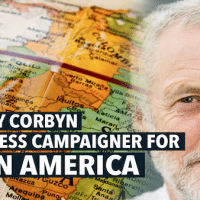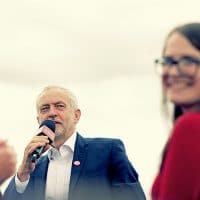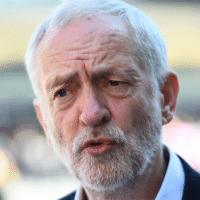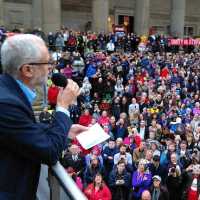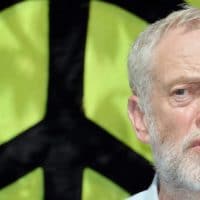-
British firm ‘hosts canned lion hunts’
Blackthorn Safaris, based in Oswestry, hosts ‘canned’ hunts on an estate 40 miles north of the mining town of Kimberly, in South Africa’s Northern Cape district.
-
The UN climate talks are coming to Britain. The climate justice movement will be ready
This week it was announced that the 2020 United Nations climate change conference–the so-called ‘Conference of the Parties’ (COP)–is set to take place in the UK.
-
Scientists against the machine
Jane Shallice examines the history of radical research at the British Society for Social Responsibility in Science.
-
Marxists, so-called Marxists, and parliamentary socialists
John Rees tries to distil some sense from recent tabloid exchanges, and looks at the real relationship between Marxism, parliament and Jeremy Corbyn.
-
The global networks of neofascism
Phil Hearse explores the worldwide allegiances which bind rising fascist movements across the world into a coordinated force.
-
Britain robbed India of $45 trillion & Thence 1.8 billion Indians died from deprivation
Eminent Indian economist Professor Utsa Patnaik (Jawaharlal Nehru University) has estimated that Britain robbed India of $45 trillion between 1765 and 1938, however it is estimated that if India had remained free with 24% of world GDP as in 1700 then its cumulative GDP would have been $232 trillion greater (1700-2003) and $44 trillion greater (1700-1950).
-
Corbyn calls for global movement against inequality, offers support to Latin America’s left
In an interview with Mexican newspaper La Jornada, Jeremy Corbyn said international efforts challenging economic injustice and inequality is needed.
-
Environmental activists rebel against government’s climate inaction
15 arrested as hundreds take part in civil disobedience outside Parliament
-
In and against the state
Labour needs to develop a socialist strategy that goes beyond a single election manifesto. Leo Panitch and Sam Gindin look at the challenge of state transformation.
-
Labour unveils plan for a financial transactions tax on 10th anniversary of Lehman Brothers collapse
SHADOW chancellor John McDonnell has outlined Labour’s plans to reform the City today that include a financial transactions tax (FTT) expected to raise around £5 billion a year for public services.
-
Race, gender and social reproduction in British capitalism, 1945-78
How can we understand the way that capitalism comes to be gendered and racialised?
-
Labour is back as the ‘political voice of the working class’
Jeremy Corbyn tells Unite conference class politics is essential for ‘transformational change’.
-
‘Corbynomics’ as fair and caring socialism
Karl Polanyi’s reciprocal, redistributive substantive-socialism; ‘Corbynomics’ as fair and caring socialism.
-
Fascists rampage through London demanding Tommy Robinson’s release
FASCISTS rampaged through central London yesterday demanding the release of far-right activist Tommy Robinson, who has been jailed for contempt of court.
-
Letter from Britain: increasingly illiberal establishment and the challenge of Jeremy Corbyn
Britain prides itself on being a liberal state, tolerant of diverse points of view with a judicial system based on law and evidence, but its recent behavior has been anything but that, reports Alexander Mercouris.
-
Delegitimising the British left
In the last month there has been a deliberate, determined attempt to turn the clock back on the general election result on 8th June 2017, to back when the left could be dismissed as irrational deluded cultists who mostly existed on social media.
-
Dreaming of communism: News from Nowhere
There can be no denying that the content of News from Nowhere, the utopian romance penned by painter, poet and designer William Morris, was heavily indebted to the writings of Karl Marx. Morris was exploring these from the spring of 1882, the year before Marx died and the year of his own 48th birthday. He continued to read Marx, especially Capital, in its French edition, the first English edition being still a few years away.
-
Theresa May is playing a reckless game of nuclear roulette
BACK in May 2017, just prior to the British general election, I wrote a piece arguing that a victory for Theresa May would see Britain dragged further towards war with Russia.
-
Jeremy Corbyn has a long and honorable record of opposing fascism, racism and anti-semitism
The Labour leader played an active part in organising against and resisting the National Front in the late ’70s.
-
Why is there always an economic crisis of some sort?
Unlike liberal economists, Marxists explore the primary role of internal contradictions within the capitalist economy. The MARX MEMORIAL LIBRARY explains why.







